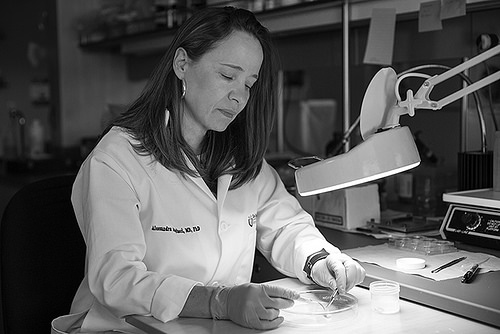People with Extraordinary Ability
People with extraordinary ability in the sciences, arts, education, business, or athletics can file an employment based green card petition in the EB-1 (employment based 1) category. The EB-1 category is the most privileged employment green card category. EB-1 also includes outstanding researchers and professors and multinational managers. EB-1 applicants forgo the onerous and challenging labor certification process and typically do not wait in lines for visa availability after the I-140 EB-1 petition is approved (though recently, the EB-1 category for Indian nationals has not been current).
The broad criteria to fit within this category is that you must demonstrate extraordinary ability through sustained national or international acclaim. Your achievements must be recognized in your field through extensive documentation. No offer of employment is required, but you must demonstrate that you will continue to work within your field of extraordinary ability. The broad standard above is implemented by requiring an applicant to provide evidence in 3 of the 10 following areas:
An Extraordinary Ability Applicant Must Provide Evidence to Meet 3 of the 10 Criteria Below:
- Nationally or internationally recognized prizes or awards for excellence. Prizes or awards for excellence received during graduate work, from employers, conferences, etc. Awards or prizes received during graduate work weigh less but can still add to a petition.
- Memberships in associations in the field which require outstanding achievement as a condition of membership. However, memberships that do not require outstanding achievements still add to a petition. Documentation can include copies of membership cards, emails confirming your membership, copies of letters confirming your membership or copies of invitations to become a member in an association.
- Evidence of published material about you in professional or major trade publications or any other published articles written by others about you and your work. Articles that specifically talk about you and your work are the strongest evidence. Articles that discuss your work in general also add to a petition.
- Evidence that you have been asked to judge the work of others, either individually or on a panel. Documentation includes emails asking you to referee a manuscript for a journal or conference with emails confirming your review submission or documentation of your position as a referee at a conference or seminar or your position on an editorial board.
- Evidence of your original scientific, scholarly, artistic, athletic, or business-related contributions of major significance to the field.
- Evidence of your authorship of scholarly articles in professional or major trade publications or other major media. Articles that are not yet published and requests for you to contribute to a book or journal can also add some weight in this area.
- Evidence of your performance of a leading or critical role in distinguished organizations.
- Evidence that you command a high salary or other significantly high remuneration in comparision to others in the field.
- Evidence of your commercial successes (in the performing arts). Evidence in this area also strengthens applications in non-art fields. For example, evidence that a scientist worked on technology that was commercialized.
- Evidence that your work has been displayed at artistic exhibitions or showcased. Obviously, this criteria is mostly applicable to applicants in the field of arts.

